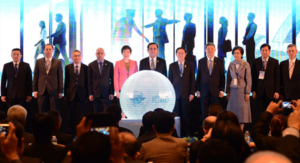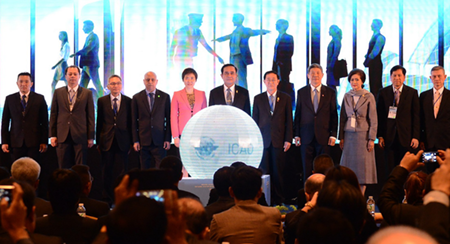 The International Civil Aviation Organization (ICAO) said it welcomes the endorsement of a new Asia and Pacific (APAC) Aviation Security Roadmap, one which will now align national and regional programs and targets with the UN aviation agency’s new Global Aviation Security Plan (GASeP).
The International Civil Aviation Organization (ICAO) said it welcomes the endorsement of a new Asia and Pacific (APAC) Aviation Security Roadmap, one which will now align national and regional programs and targets with the UN aviation agency’s new Global Aviation Security Plan (GASeP).
ICAO Secretary General Dr. Fang Liu, in her address to the ICAO Regional Aviation Security Conference held in Bangkok, Thailand, December 21, stressed that ICAO’s new GASeP sets out key priorities where ICAO, states, and other agencies should now focus their urgent attention.
“The GASeP includes an ambitious framework for enhancing international aviation security over the coming years, and through the 32 actions and 94 tasks identified in its Roadmap, the aviation security community will now be much better prepared and more effectively aligned with Security Council Resolution 2309,” she said. “And while aggressive in some respects, these targets and dates are also fully achievable with dedicated effort.”
The very first GASeP was established in November 2017 by ICAO as a roadmap for implementing globally agreed standards and recommended practices relating to aviation security.
The GASeP aims to improve international coordination, response, and planning to counter threats to civil aviation passengers, cargo, aircraft, and facilities.
The plan calls for action at the global, regional, and national levels by states, industry, and other stakeholders in raising the level of implementation of the Convention on International Civil Aviation’s Annex 17, which deals with aviation security.
The main outcome ICAO was seeking at the Bangkok conference was the fine-tuning of a regional GASeP roadmap specific to the Asia-Pacific region.
Liu praised the related commitments which were ultimately realized, and noted that they were a critical first step which ICAO expected to be emulated worldwide.
She also observed that the new GASeP Roadmap would entail some important and fairly significant work ahead for a number of Asia-Pacific states.
She called on them “to be open to accepting assistance to enhance their local effective implementation, whether it involves training, technology, or mentoring, as well as to ensuring that any solutions set out are fully sustainable.”
Liu also emphasized the critical importance of increased investment more generally in aviation infrastructure and human resource development by states so they could optimize global aviation connections to the benefit of local citizens and producers.
She further highlighted the importance of developing world-class training organizations in order to produce high-quality next-generation aviation professionals for the entire region.
She also suggested that APAC states begin integrating their aviation development objectives into their national economic development masterplans.
“It will only be by virtue of sustained political will, especially at the highest levels of government and industry, that the Global Aviation Security Plan will succeed in its ambitious mandate,” she said.
Photo courtesy of ICAO





